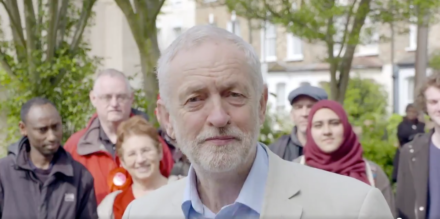
The democracy review’s final phase comes to an end on Friday, but proposals have already been leaked. The suggested reforms, which will be voted on by delegates at party conference in September, are largely seen by those on the left as valiant efforts to further democratise the party according to Bennite values, and by those on the Corbynsceptic wing as… well, every reaction I received from them last night included expletives.
Three key proposals have been revealed so far. First, there’s the recommendation that leadership candidates should only have to win the support of 5 per cent of the Parliamentary Labour Party (MPs and MEPs). After the so-called ‘McDonnell amendment’ reduced the threshold of nominations from 15 to 10 per cent last year, this move surprises no one.
It is worth noting that the 5 per cent idea differs from Momentum’s preferred alternative, however, as the grassroots campaign group espouses the ‘10-10-10’ model requiring support from 10 per cent of PLP, 10 per cent of affiliated unions, 10 per cent of CLPs. And young (less cautious) Corbyn supporters have told LabourList they believe the PLP support threshold should be zero per cent.
Second, the MEP place on the NEC, Labour’s ruling national executive committee – held now by Richard Corbett – should be removed. If passed, that would occur before Brexit. This one doesn’t go as far as the composition change pitched by Momentum, which would abolish all shadow cabinet and PLP positions on the basis that there is no mandate from members or unions.
Finally, the most controversial proposal: party members should choose local council leaders. Local government is the last territory held by Corbynsceptics – most assume it will fall to the left eventually as councillors die out (politically and literally), but of course Corbynsceptics want to keep hold of this power base for as long as possible.
It must be said, though, that concerns over this idea aren’t being raised exclusively by anti-Corbyn Labour members. Councillors have pressing questions. When would there by time to hold leadership elections? How much would those one-member-one-vote elections cost? Does this work with the stricter whipping system in councils? Would all-women shortlists, currently illegal for directly-elected mayors, be allowed?
The bottom line is that each of these reforms, while rooted in long-held beliefs about a member-led party, helps Jeremy Corbyn and a potential successor from the left. And while the Labour leadership fortifies its command of the party, Theresa May has been losing control. It’s mayhem when ministers can defy the whip and openly attack the Prime Minister.
Over the weekend, levels of hostility reached new heights. Responding to corporate concerns over a hard Brexit, Boris Johnson is said to have replied “f*** business”. On the heels of Jeremy Hunt’s well-played request for a £20bn NHS boost, the less subtle Gavin Williamson found his own special way of campaigning for an increased departmental budget: threaten to “break” the Prime Minister.
The latest internal brawl was sparked yesterday when Liz Truss, Chief Secretary to the Treasury, delivered a characteristically weird speech in which she joked about “wood-burning Goves – I mean stoves” and “hot air” at the environment department. Meanwhile, Greg Clark is going off-message on Brexit: at The Times CEO summit he described an exit at least as soft as Labour’s position.
The Conservative leadership contest has already begun, in the middle of Brexit negotiations, whereas Corbyn is only getting stronger. Whether a Corbynite, a Corbynsceptic or something in the middle, you’ve got to admit: the Labour Party under Corbyn looks pretty strong and stable next to Theresa May’s shambolic government.
Sienna @siennamarla
Sign up to LabourList’s morning email for everything Labour, every weekday morning.




More from LabourList
Letters to the Editor – week ending 15th February 2026
‘Labour council candidates – it’s tough, but all is not lost’
‘Labour won’t stop the far right by changing leaders — only by proving what the left can deliver’